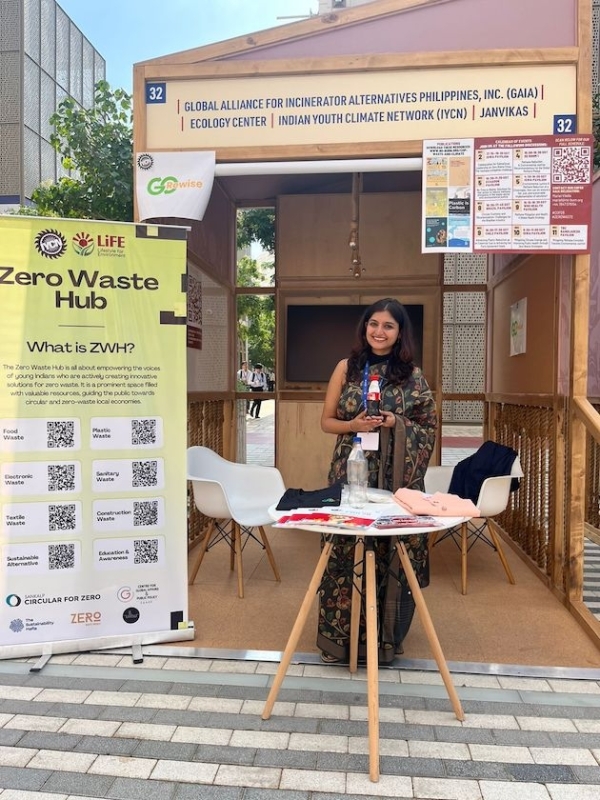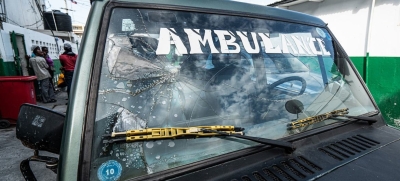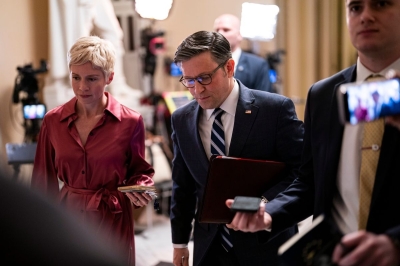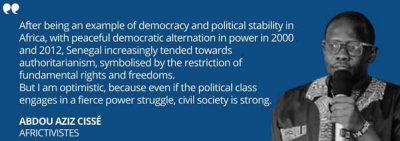DUBAI, Dec 05 (IPS) — Aditi Agarwal, a brilliant computer science engineer and Gold Medalist, once thrived in the tech world, contributing to innovations at Microsoft. However, she felt a calling to address real-world challenges, particularly those related to carbon emissions and plastic pollution. In pursuit of a nobler cause, she joined a company called Go Rewise, a youth-led initiative in India dedicated to recycling PET bottles through a circular economy approach.
Agarwal’s passion for environmental sustainability is palpable as she explains, "There is no better and nobler cause than reducing carbon emissions in the world today because that is the only way we are going to create a balance and survive." Her decision to “switch gears” from the corporate world to environmental activism reflects a deep commitment to making a tangible difference.
Go Rewise focuses on the staggering issue of plastic waste in India, specifically targeting the 10 million PET bottles discarded annually.
Agarwal elucidates the essence of their initiative, stating, "It means ‘go recycle wisely’. We believe in circularity—any resource extracted from the earth should be in balance, in circulation as long as possible." The team’s groundbreaking efforts involve technical recycling, a meticulous process involving more than 20 steps of decontamination to ensure the recycled raw material is safe for human contact.
Agarwal’s passion shines through as she describes the impact of the work: "For the first time in India, we are creating a bottle out of a bottle."
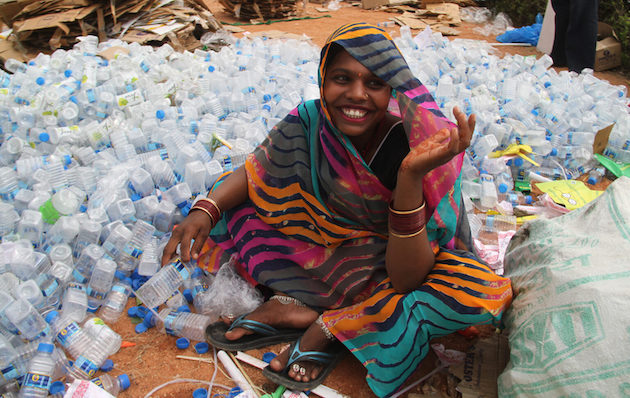
The significance lies not only in recycling but also in preventing hazardous waste from accumulating in landfills. Agarwal emphasizes the urgency of their mission.
"Imagine 10 million bottles every year going into landfills; how much space it will take, and this plastic wouldn’t biodegrade in just six months or a year."
The initiative is not just about recycling; it’s a holistic approach that involves collaboration with beverage companies and obtaining licenses from food regulators. "We have a license from food regulators for doing so. We are working with many beverage companies."
The strategic partnerships enable Go Rewise to intervene at various stages of the plastic lifecycle, preventing pollution and promoting sustainability.
The story goes beyond recycling; it involves millions of ragpickers across India, who play a crucial role in the process. Agarwal speaks passionately about their involvement.
"We collect from ragpickers, and we train them on what is PET and what is non-PET."
The initiative empowers individuals on the ground, creating awareness about different types of plastics and their impact on the environment.
Once the collected bottles reach Go Rewise, they undergo a meticulous process of segregation, washing, and drying before being put to use again.
Agarwal explains, "We wash the bottles, and the chemical properties of the polymer are regulated." This commitment to quality ensures that the recycled bottles can go through the process multiple times, contributing to a sustainable and circular economy.
AAgarwal, now serving as the Assistant Vice President overseeing marketing for Go Rewise, is a driving force behind the initiative. She attends COP28 not only to showcase the innovative solutions they are implementing but also to inspire others to think critically about their contributions to environmental sustainability.
“I am here at COP28 to inspire and get inspired,” she told the Inter Press Service.
Reflecting on her journey, Agarwal emphasizes the importance of assessing solutions carefully "Activism doesn’t mean discarding the solution without assessment. We want people to assess the solutions they are creating. There is a need for thoughtful and sustainable approaches that cater to the demands of billions of people on Earth.”
As a computer science engineer who once excelled in the corporate world, Agarwal’s story is a testament to the power of individuals to make a difference. Her decision to step away from the conventional path and delve into real-world problems echoes a broader call for a paradigm shift in how we approach environmental challenges.
Agarwal’s journey with Go Rewise is a story of transformation—from a tech-driven career to a passionate advocate for environmental sustainability. Her words serve as a rallying cry for a circular economy, challenging the prevailing linear approach, which, according to her, is make-take and waste.
As she stands at COP28, Agarwal seeks not only to inspire but also to ignite a collective movement towards a future where products re-enter the value chain, contributing to a healthier planet for generations to come.
IPS UN Bureau Report

